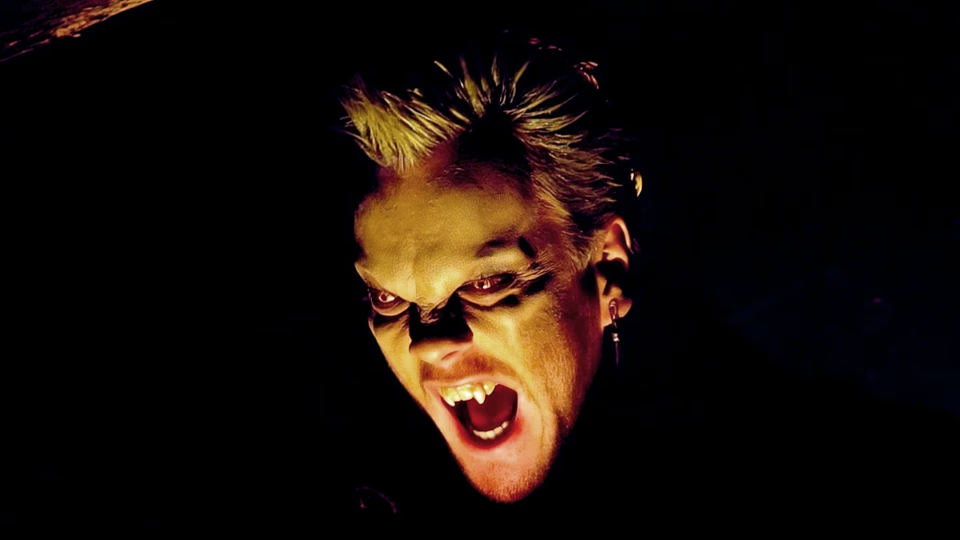The Lost Boys

A recently divorced mother and her two sons move to a coastal town, where the oldest son falls in with a gang of vampires.
The Lost Boys is a tricky movie. It’s tricky because you remember it being a better movie than it actually is. I’ve seen The Lost Boys several times, and when I watched it for this review, I went in expecting to give it an ‘A’. In truth it has some problems, but let’s start with the good.
First, The Lost Boys simultaneously invented and perfected the “vampire punk” sub-genre that seems to have invaded every vampire film since. Once could argue that Near Dark had a hand in this as well and, while I wouldn’t argue, I would point out that The Lost Boys was far more commercially successful.
Second, The Lost Boys benefits greatly from the presence of Richard Donner as executive producer. You can almost feel a bit of The Goonies in parts of this movie, and his knack for spotting, and working with, young talent shows in Corey Haim’s great performance.
Finally, The Lost Boys manages the perfect balance between humor and horror, and never takes itself too seriously. Littered with B-movie references (my favorites: the “Surf Nazi’s” on the beach and Corey Haim’s “Reform School Girls” poster), the script tries to be very unpretentious. Unfortunately the same can’t be said for the direction, which is one of the movie’s problems.
While director Joel Schumacher’s decision to film the movie in mainly red tints was a great move, his frequent use cross-fading is more at home in a music video and adds an air of pretension that sits at odds with the script.
Also, with the exception of Kiefer Sutherland’s character, the vampire gang is completely interchangeable with absolutely no characterization or charisma. Ditto Jamison Newlander’s Alan Frog character, who has little to work with script wise, and lacks the personality of Corey Feldman. Also there are several underdeveloped themes, most notably the Peter Pan one, that deserve more attention.
On another note, I picked up on something during this viewing that I never caught before: Corey Haim’s character is gay. He may not have been written that way, but Schumacher sure leans him in that direction. Notice all the posters of guys on his walls (they look like models), and clothes he wears, not to mention the whole bath scene. I’m sure there’s probably a whole homo-erotic theme running through the movie I never picked up on before, but it’s layers like this that allow the film to hold up through time.